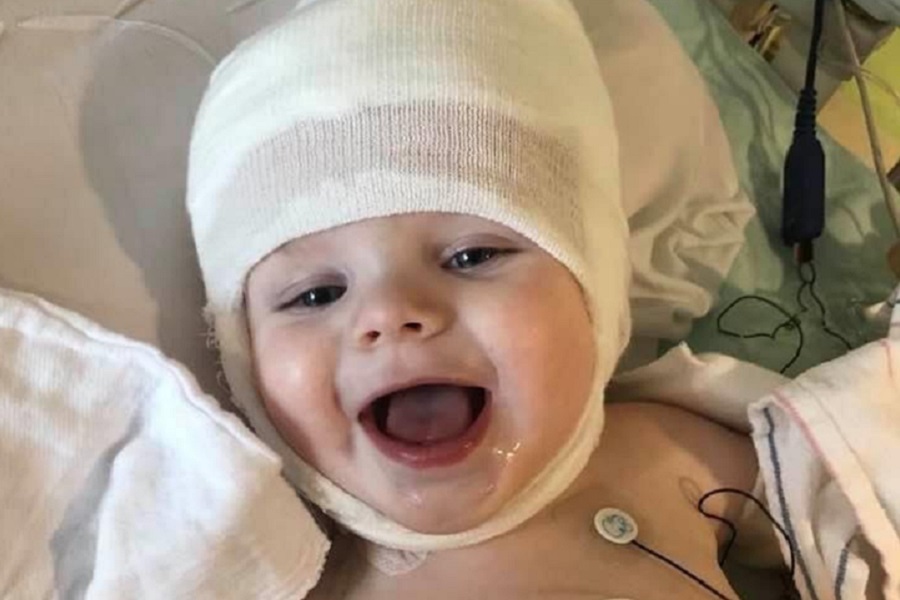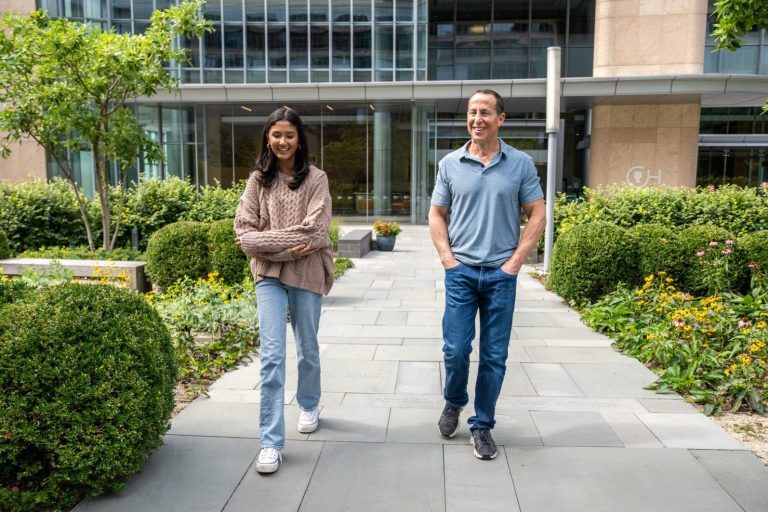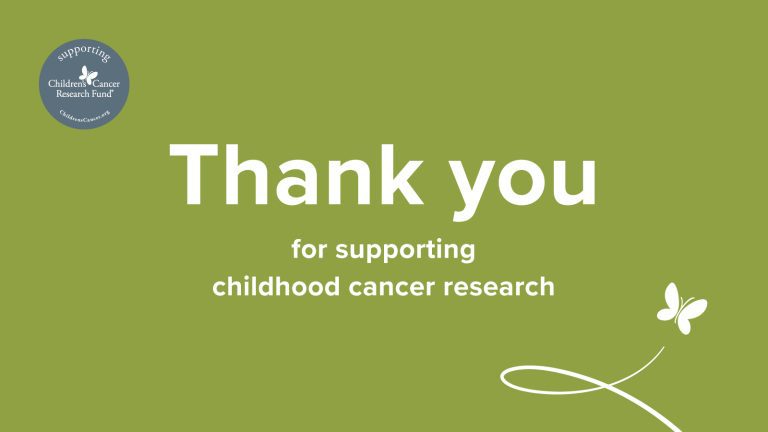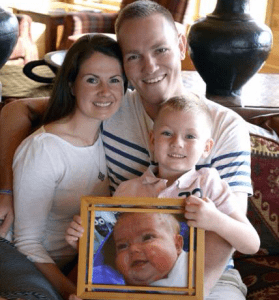“I wish I had better news to share with you,” the doctor said to parents Chris and Christine, whose 9-month old son, Brice, had just come out of emergency brain surgery. “But we have the possibility of a catastrophic event.”
The Beginning
Just a few weeks earlier, Chris and Christine had noticed that baby Brice had started holding his head slightly to the side. This didn’t alarm them, but when usually-bubbly Brice started sleeping more than normal and his head tilt became even more noticeable, they brought it up with his pediatrician.
“His pediatrician noticed his head was bigger, too big for how much Brice had grown since our last visit,” Chris said. The pediatrician could tell something wasn’t right and Chris and Christine were thrown into a whirlwind of appointments where doctors discovered a tumor on Brice’s brain.
After two surgeries, one to drain fluid from around Brice’s brain and another to biopsy the tumor, came the final diagnosis: embryonal tumors with multilayered rosettes (ETMR). This type of tumor is so rare that only 10 children are diagnosed it per year, and there’s hardly any research on effective methods of treating it. This could not have been worse news. Doctors told Brice’s parents that this disease had a three-year survival rate of around 35%.
“Looking back, I think that was probably generous,” Chris said. “We started off in a Facebook support group for ETMR families, and we had to get out of it because there were just never any celebratory stories.”
Because Brice’s tumor was so rare, there was almost no body of research to draw from to know how to treat it. While any cancer diagnosis is a tragedy, Chris and Christine found themselves wishing for something, anything, other than ETMR.
“It’s one thing to get cancer, but when you get one we know nothing about, and one that nobody has ever heard of, you’re really kind of helpless,” Chris said. “You’re really just throwing things against the wall to see what sticks, and that’s a really scary thing to do for your child.”
Harsh Realities
In February, it was becoming clear that Brice’s treatments weren’t working, and that doctors didn’t have the tools they need to help Brice beat this cancer. A few weeks later, doctors told Chris and Christine that their only son likely had just weeks to live. Drawing incredible strength from their faith, Chris and Christine decided to make every last moment with Brice has happy as it could possibly be.
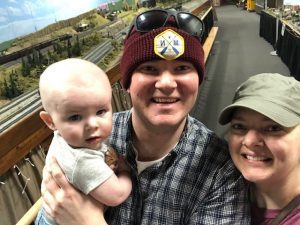
“Each day with him was like trying to squeeze the last of the toothpaste out of the bottle,” said Chris, Brice's dad.
In Brice’s final weeks, he visited the Mall of America, rode on a merry-go-round, spent time with family, and enjoyed precious moments in the arms of those who loved him most. His parents made sure to do all of Brice’s bucket-list activities in short bursts, so he had the energy to truly enjoy them.
“Each day with him was like trying to squeeze the last of the toothpaste out of the bottle,” Chris said. “I don’t know how, but we were able to actually enjoy it, even though we knew what was coming. I think we figured you can sit there all day crying and asking why, or you can make the effort to make some memories with your child.”
On April 10, 2020, Brice passed away at home, Chris and Christina by his side. He was 17 months old.
“A lot of times for no reason he would smile or laugh, almost right up until the end,” Chris said. “It was crazy how tough he was. He was a little warrior.”
Finding Purpose through Grief
Since Brice’s passing, Chris and Christine have decided to advocate for the research that, had it existed, could have saved Brice’s life. They knew almost nothing about childhood cancer before they were thrown head-first into the cancer world, and they’re determined to use Brice’s story to raise awareness and inspire change.
“We knew zero,” Chris said. “I mean you see things about it, but we truly never thought it would be us. You’re normal one day, and the next day you’re those people in the commercials. You’re those people who wish everyone was donating to research, you’re the people who wish every cancer organization had endless money.”
Today, they are working through their grief by leaning heavily on their faith and each other. Chris says that all through Brice’s fight with cancer, and even today, he and Christine have not argued.
“We’re certainly up and down, but I help her, and she helps me, and we figure it out imperfectly,” Chris said. “Our faith has carried us through this, and still is carrying us. Bad things happen, and we don’t always know why, and how big of us to believe we’re owed an explanation. We won’t know why Brice got cancer, but we know the only way we’ll ever beat things like this is through awareness, through conversation, through love.”
“Win Today”
Their hope in sharing their story is to let people know that today’s treatments weren’t enough for their son, but it doesn’t have to be this way. They hope that their advocacy and their pain can move others to action to fund research for kids fighting cancer today, and kids who inevitably will be diagnosed in the future.
Fighting an enemy as big as cancer can be overwhelming, and so is dealing with grief. But Chris is sticking with a mantra he used often during Brice’s treatment – “win today.”
“With Brice, all we had was ‘right now,’ Chris said. “So we just kept taking one day at a time. The motto was ‘win today.’ If everything is okay in this moment, we’re winning. Start with the simple things and then move on to the more complicated things. You’d be surprised how far that strategy can take you.”
Support Groundbreaking Brain Tumor Research
When Brice was diagnosed, doctors told his parents there was very little research on his type of brain tumor. Researchers have the ideas and skills needed to find better treatments and cures for kids fighting brain tumors, but they can’t do it alone. Your donation will help move these incredible ideas forward.

